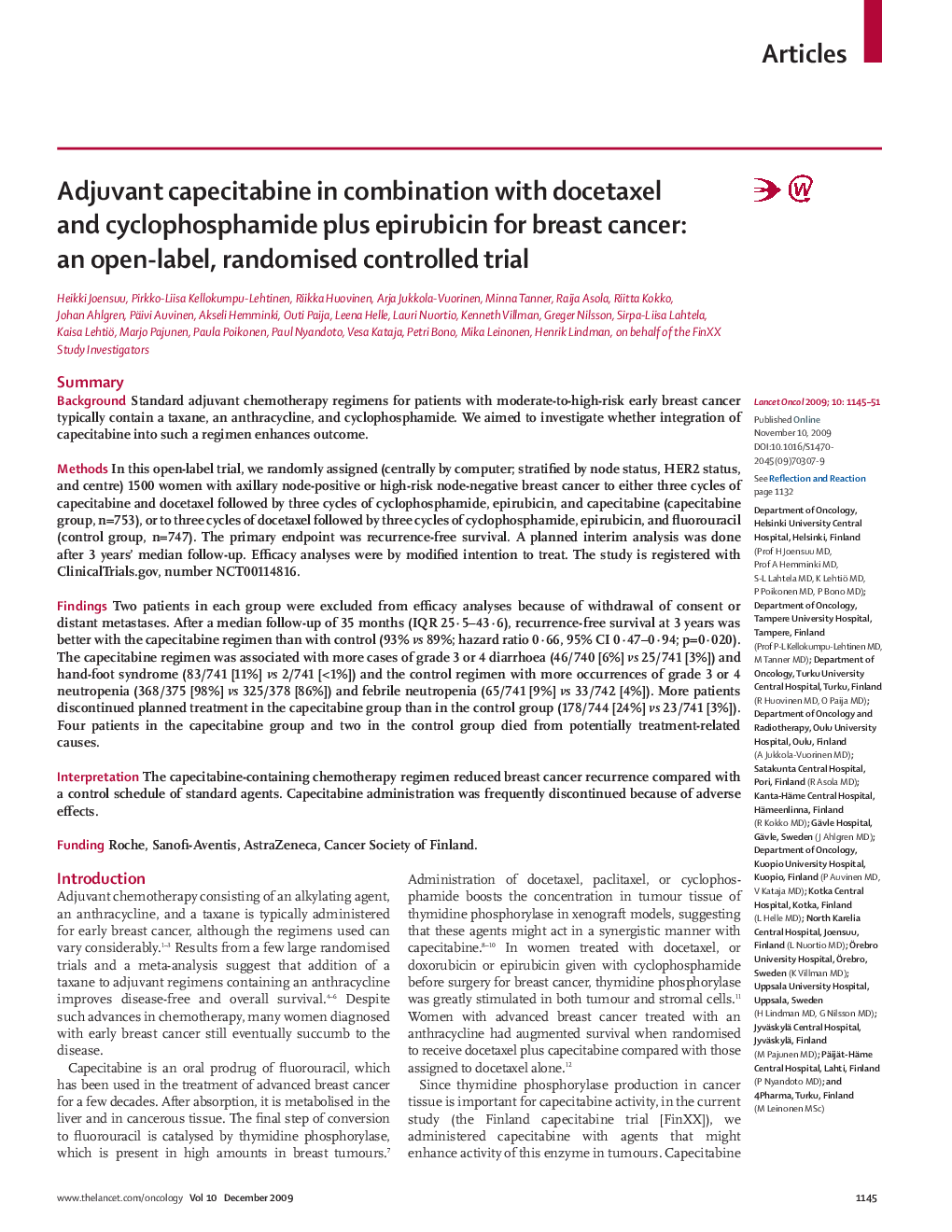| Article ID | Journal | Published Year | Pages | File Type |
|---|---|---|---|---|
| 3994588 | The Lancet Oncology | 2009 | 7 Pages |
SummaryBackgroundStandard adjuvant chemotherapy regimens for patients with moderate-to-high-risk early breast cancer typically contain a taxane, an anthracycline, and cyclophosphamide. We aimed to investigate whether integration of capecitabine into such a regimen enhances outcome.MethodsIn this open-label trial, we randomly assigned (centrally by computer; stratified by node status, HER2 status, and centre) 1500 women with axillary node-positive or high-risk node-negative breast cancer to either three cycles of capecitabine and docetaxel followed by three cycles of cyclophosphamide, epirubicin, and capecitabine (capecitabine group, n=753), or to three cycles of docetaxel followed by three cycles of cyclophosphamide, epirubicin, and fluorouracil (control group, n=747). The primary endpoint was recurrence-free survival. A planned interim analysis was done after 3 years' median follow-up. Efficacy analyses were by modified intention to treat. The study is registered with ClinicalTrials.gov, number NCT00114816.FindingsTwo patients in each group were excluded from efficacy analyses because of withdrawal of consent or distant metastases. After a median follow-up of 35 months (IQR 25·5–43·6), recurrence-free survival at 3 years was better with the capecitabine regimen than with control (93% vs 89%; hazard ratio 0·66, 95% CI 0·47–0·94; p=0·020). The capecitabine regimen was associated with more cases of grade 3 or 4 diarrhoea (46/740 [6%] vs 25/741 [3%]) and hand-foot syndrome (83/741 [11%] vs 2/741 [<1%]) and the control regimen with more occurrences of grade 3 or 4 neutropenia (368/375 [98%] vs 325/378 [86%]) and febrile neutropenia (65/741 [9%] vs 33/742 [4%]). More patients discontinued planned treatment in the capecitabine group than in the control group (178/744 [24%] vs 23/741 [3%]). Four patients in the capecitabine group and two in the control group died from potentially treatment-related causes.InterpretationThe capecitabine-containing chemotherapy regimen reduced breast cancer recurrence compared with a control schedule of standard agents. Capecitabine administration was frequently discontinued because of adverse effects.FundingRoche, Sanofi-Aventis, AstraZeneca, Cancer Society of Finland.
